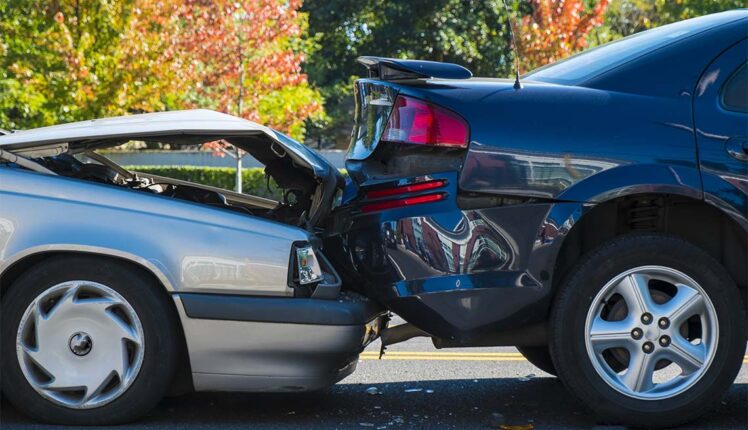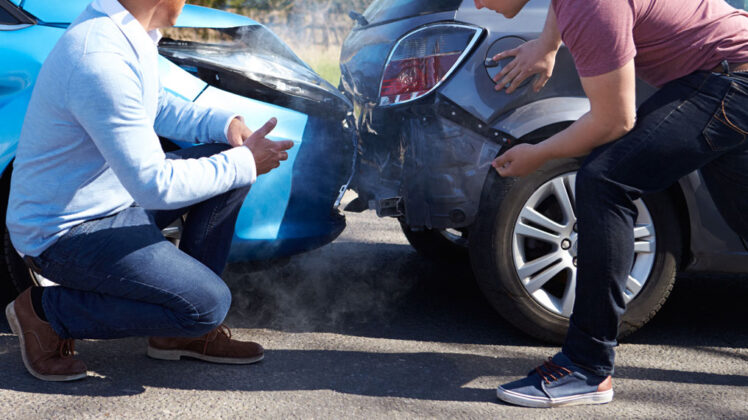Dealing with the aftermath of a car accident can be as tumultuous as the collision itself. The path from the crash site to full recovery—be it physical, financial, or emotional—is fraught with legal complexities and procedural nuances. This guide aims to simplify this journey, providing you with clear, actionable steps to navigate the legal maze that follows a car accident. With a focus on ensuring your rights are protected and your compensation maximized, let’s embark on this critical journey together, one step at a time.
Understand Your Immediate Obligations

The moments following a car accident are crucial. Ensure everyone’s safety, call emergency services, and report the accident to the police. These steps are not just about immediate care but also about documenting the incident—an essential component for any legal action or insurance claim that follows. Exchange information with the other parties involved, including names, contact details, and insurance information, but refrain from admitting fault. This initial stage sets the foundation for any legal proceedings that may ensue.
Seek Legal Advice Early
Before navigating the complexities of insurance claims and potential legal battles, consult with a legal professional. This doesn’t mean you’re gearing up for a courtroom drama but ensuring you understand your rights and the best course of action. Legal advice can be invaluable in guiding you through the initial steps, especially in cases with potential for compensation. For tailored advice specific to your situation, consider scheduling a consultation with a law firm specializing in car accidents, like George Sink Injury Lawyers. Visit the firm, and their experienced attorneys will provide you with the clarity and direction you need to proceed.
Document Everything
In the legal world, documentation is king. From medical reports and repair bills to photographs of the accident scene and witness statements, every piece of evidence adds to the strength of your case. Start compiling these documents as soon as possible. They will be crucial in establishing the facts of the accident, the extent of your injuries, and the financial impact it has had on your life. Detailed records not only support your insurance claim but also prepare you for any legal challenges that might arise.
Navigate Insurance Claims with Caution

Dealing with insurance companies can be one of the most daunting aspects of a car accident’s aftermath. When filing a claim, be thorough yet cautious—insurance adjusters are skilled at minimizing payouts. Provide necessary information without undermining your case. Understand the coverage details of your policy and the extent of your entitlements. If negotiations with the insurance company stall or the settlement offer is unsatisfactory, your legal counsel can step in to advocate on your behalf.
Consider the Scope of Compensation
Compensation after a car accident isn’t limited to vehicle repairs and medical bills. You may be entitled to recover costs related to lost wages, pain and suffering, and future medical care. Understanding the full scope of compensation available to you is critical. A legal professional can help you identify all potential areas of compensation, ensuring you don’t overlook significant financial recovery opportunities. This comprehensive approach ensures you’re not left bearing any financial burdens that should rightfully be covered by insurance or through legal action.
Evaluate the Need for Legal Action
Not all car accidents result in courtroom battles, but some circumstances warrant legal action. If liability is disputed, the insurance settlement is inadequate, or the accident resulted in significant injury, litigation might be the best path forward. Consulting with a car accident lawyer can help you assess the viability of your case and the potential outcomes of pursuing legal action. They can guide you through the complexities of filing a lawsuit, negotiating with defendants, and, if necessary, presenting your case in court.
Engage in Effective Communication

Communication plays a pivotal role in the aftermath of a car accident. Keep open lines of communication with your legal representative, insurance company, and any other parties involved in the process. However, be mindful of what you share. Avoid discussing fault or details of the accident on social media or with anyone but your lawyer. Effective communication can expedite your claim and protect your interests, but misplaced words can undermine your position.
Prepare for Possible Litigation
While many car accident claims are settled out of court, some require litigation to reach a fair conclusion. Preparing for this possibility involves gathering comprehensive evidence, understanding the legal arguments at play, and mentally readying yourself for the court process. Your attorney will guide you through pre-trial procedures, discovery, and trial preparations, ensuring you’re ready for each step. Even if litigation seems daunting, sometimes it’s the best route to achieving the justice and compensation you deserve.
Understand the Statute of Limitations
Every legal action is bound by time limits, known as statutes of limitations. These laws dictate how long you have to file a lawsuit after an accident. Missing this deadline can forfeit your right to pursue compensation. It’s crucial to understand the specific time limits applicable in your jurisdiction and ensure your legal actions are timely. Your attorney can help navigate these deadlines, ensuring your case proceeds without procedural hitches.
Focus on Recovery

While navigating the legal aftermath of a car accident, it’s vital not to lose sight of the importance of your physical and emotional recovery. Legal battles and insurance claims can be stressful, but prioritizing your health is paramount. Lean on support systems, whether it’s family, friends, or professional counselors. Remember, the ultimate goal of pursuing legal action and compensation is to facilitate your recovery and return to normalcy.
Seek Fair Resolution
The objective of navigating legal procedures after a car accident is to secure a fair resolution that compensates for your losses and suffering. Whether through settlement negotiations or courtroom litigation, the aim is to ensure justice is served. Be open to advice from your legal team regarding the best course of action, whether that means accepting a settlement or taking your case to trial. Their expertise and judgment are invaluable in securing a resolution that truly reflects the extent of your damages and losses.
Conclusion
The aftermath of a car accident is undeniably challenging, marked by a complex blend of legal, financial, and emotional hurdles. However, understanding the step-by-step process of navigating legal procedures can significantly demystify the journey, offering a clearer path towards resolution and recovery. From the immediate steps taken at the accident scene to the potential complexities of litigation, each phase requires careful attention and informed decisions.
Remember, you’re not alone in this journey. Legal professionals specialize in guiding individuals through these challenging times, ensuring your rights are protected and your well-being is prioritized. By taking a proactive approach, staying informed, and seeking the right support, you can navigate the aftermath of a car accident with confidence and resilience. Ultimately, the goal is not just to recover compensation but to restore your peace of mind and well-being, allowing you to move forward from the incident with strength and assurance.

